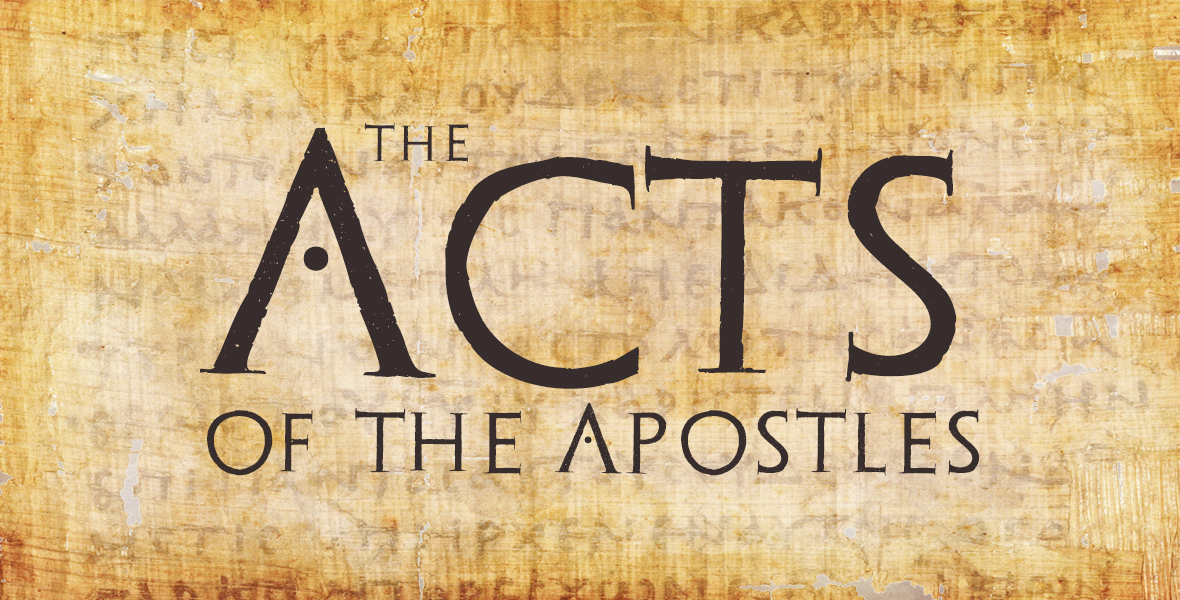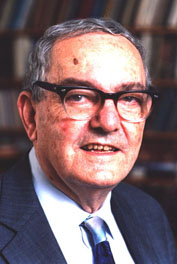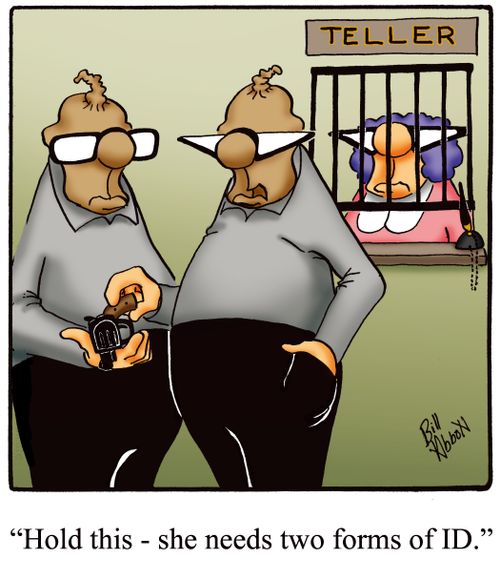
Let's read the Bible together in the next year. Today, our passages are 1 Kings 14:1–15:24; Acts 10:1-23a; Psalm 132:1-3; and Proverbs 17:7-8. The readings are from The Message by Eugene H. Peterson.
1 Kings 14-15:24 (The Message)
1 Kings 14
1-3 At about this time Jeroboam's son Abijah came down sick. Jeroboam said to his wife, "Do something. Disguise yourself so no one will know you are the queen and go to Shiloh. Ahijah the prophet lives there, the same Ahijah who told me I'd be king over this people. Take along ten loaves of bread, some sweet rolls, and a jug of honey. Make a visit to him and he'll tell you what's going on with our boy." 4-5 Jeroboam's wife did as she was told; she went straight to Shiloh and to Ahijah's house. Ahijah was an old man at this time, and blind, but God had warned Ahijah, "Jeroboam's wife is on her way to consult with you regarding her sick son; tell her this and this and this."
5-9 When she came in she was disguised. Ahijah heard her come through the door and said, "Welcome, wife of Jeroboam! But why the deception? I've got bad news for you. Go and deliver this message I received firsthand from God, the God of Israel, to Jeroboam: I raised you up from obscurity and made you the leader of my people Israel. I ripped the kingdom from the hands of David's family and gave it to you, but you weren't at all like my servant David who did what I told him and lived from his undivided heart, pleasing me. Instead you've set a new record in works of evil by making alien gods—tin gods! Pushing me aside and turning your back—you've made me mighty angry.
10-11 "And I'll not put up with it: I'm bringing doom on the household of Jeroboam, killing the lot of them right down to the last male wretch in Israel, whether slave or free. They've become nothing but garbage and I'm getting rid of them. The ones who die in the city will be eaten by stray dogs; the ones who die out in the country will be eaten by carrion crows. God's decree!
12-13 "And that's it. Go on home—the minute you step foot in town, the boy will die. Everyone will come to his burial, mourning his death. He is the only one in Jeroboam's family who will get a decent burial; he's the only one for whom God, the God of Israel, has a good word to say.
14-16 "Then God will appoint a king over Israel who will wipe out Jeroboam's family, wipe them right off the map—doomsday for Jeroboam! He will hit Israel hard, as a storm slaps reeds about; he'll pull them up by the roots from this good land of their inheritance, weeding them out, and then scatter them to the four winds. And why? Because they made God so angry with Asherah sex-and-religion shrines. He'll wash his hands of Israel because of Jeroboam's sins, which have led Israel into a life of sin."
17-18 Jeroboam's wife left and went home to Tirzah. The moment she stepped through the door, the boy died. They buried him and everyone mourned his death, just as God had said through his servant the prophet Ahijah.
19-20 The rest of Jeroboam's life, the wars he fought and the way he ruled, is written in The Chronicles of the Kings of Israel. He ruled for twenty-two years. He died and was buried with his ancestors. Nadab his son was king after him.
21-24 Rehoboam son of Solomon was king in Judah. He was forty-one years old when he took the throne and was king for seventeen years in Jerusalem, the city God selected from all the tribes of Israel for the worship of his Name. Rehoboam's mother was Naamah, an Ammonite. Judah was openly wicked before God, making him very angry. They set new records in sin, surpassing anything their ancestors had done. They built Asherah sex-and-religion shrines and set up sacred stones all over the place—on hills, under trees, wherever you looked. Worse, they had male sacred prostitutes, polluting the country outrageously—all the stuff that God had gotten rid of when he brought Israel into the land.
25-28 In the fifth year of King Rehoboam's rule, Shishak king of Egypt made war against Jerusalem. He plundered The Temple of God and the royal palace of their treasures, cleaned them out—even the gold shields that Solomon had made. King Rehoboam replaced them with bronze shields and outfitted the royal palace guards with them. Whenever the king went to God's Temple, the guards carried the shields but always returned them to the guardroom.
29-31 The rest of Rehoboam's life, what he said and did, is all written in The Chronicles of the Kings of Judah. There was war between Rehoboam and Jeroboam the whole time. Rehoboam died and was buried with his ancestors in the City of David. His mother was Naamah, an Ammonite. His son Abijah ruled after him.
5-9 When she came in she was disguised. Ahijah heard her come through the door and said, "Welcome, wife of Jeroboam! But why the deception? I've got bad news for you. Go and deliver this message I received firsthand from God, the God of Israel, to Jeroboam: I raised you up from obscurity and made you the leader of my people Israel. I ripped the kingdom from the hands of David's family and gave it to you, but you weren't at all like my servant David who did what I told him and lived from his undivided heart, pleasing me. Instead you've set a new record in works of evil by making alien gods—tin gods! Pushing me aside and turning your back—you've made me mighty angry.
10-11 "And I'll not put up with it: I'm bringing doom on the household of Jeroboam, killing the lot of them right down to the last male wretch in Israel, whether slave or free. They've become nothing but garbage and I'm getting rid of them. The ones who die in the city will be eaten by stray dogs; the ones who die out in the country will be eaten by carrion crows. God's decree!
12-13 "And that's it. Go on home—the minute you step foot in town, the boy will die. Everyone will come to his burial, mourning his death. He is the only one in Jeroboam's family who will get a decent burial; he's the only one for whom God, the God of Israel, has a good word to say.
14-16 "Then God will appoint a king over Israel who will wipe out Jeroboam's family, wipe them right off the map—doomsday for Jeroboam! He will hit Israel hard, as a storm slaps reeds about; he'll pull them up by the roots from this good land of their inheritance, weeding them out, and then scatter them to the four winds. And why? Because they made God so angry with Asherah sex-and-religion shrines. He'll wash his hands of Israel because of Jeroboam's sins, which have led Israel into a life of sin."
17-18 Jeroboam's wife left and went home to Tirzah. The moment she stepped through the door, the boy died. They buried him and everyone mourned his death, just as God had said through his servant the prophet Ahijah.
19-20 The rest of Jeroboam's life, the wars he fought and the way he ruled, is written in The Chronicles of the Kings of Israel. He ruled for twenty-two years. He died and was buried with his ancestors. Nadab his son was king after him.
21-24 Rehoboam son of Solomon was king in Judah. He was forty-one years old when he took the throne and was king for seventeen years in Jerusalem, the city God selected from all the tribes of Israel for the worship of his Name. Rehoboam's mother was Naamah, an Ammonite. Judah was openly wicked before God, making him very angry. They set new records in sin, surpassing anything their ancestors had done. They built Asherah sex-and-religion shrines and set up sacred stones all over the place—on hills, under trees, wherever you looked. Worse, they had male sacred prostitutes, polluting the country outrageously—all the stuff that God had gotten rid of when he brought Israel into the land.
25-28 In the fifth year of King Rehoboam's rule, Shishak king of Egypt made war against Jerusalem. He plundered The Temple of God and the royal palace of their treasures, cleaned them out—even the gold shields that Solomon had made. King Rehoboam replaced them with bronze shields and outfitted the royal palace guards with them. Whenever the king went to God's Temple, the guards carried the shields but always returned them to the guardroom.
29-31 The rest of Rehoboam's life, what he said and did, is all written in The Chronicles of the Kings of Judah. There was war between Rehoboam and Jeroboam the whole time. Rehoboam died and was buried with his ancestors in the City of David. His mother was Naamah, an Ammonite. His son Abijah ruled after him.
1 Kings 15
Abijah of Judah
1-6 In the eighteenth year of the rule of Jeroboam son of Nebat, Abijah took over the throne of Judah. He ruled in Jerusalem three years. His mother was Maacah daughter of Absalom. He continued to sin just like his father before him. He was not truehearted to God as his great-grandfather David had been. But despite that, out of respect for David, his God graciously gave him a lamp, a son to follow him and keep Jerusalem secure. For David had lived an exemplary life before God all his days, not going off on his own in willful defiance of God's clear directions (except for that time with Uriah the Hittite). But war continued between Abijah and Jeroboam the whole time. 7-8 The rest of Abijah's life, everything he did, is written in The Chronicles of the Kings of Judah. But the war with Jeroboam was the dominant theme. Abijah died and was buried with his ancestors in the City of David. His son Asa was king after him.
Asa of Judah
9-10 In the twentieth year of Jeroboam king of Israel, Asa began his rule over Judah. He ruled for forty-one years in Jerusalem. His grandmother's name was Maacah. 11-15 Asa conducted himself well before God, reviving the ways of his ancestor David. He cleaned house: He got rid of the sacred prostitutes and threw out all the idols his predecessors had made. Asa spared nothing and no one; he went so far as to remove Queen Maacah from her position because she had built a shockingly obscene memorial to the whore goddess Asherah. Asa tore it down and burned it up in the Kidron Valley. Unfortunately, he didn't get rid of the local sex-and-religion shrines. But he was well-intentioned—his heart was in the right place, in tune with God. All the gold and silver vessels and artifacts that he and his father had consecrated for holy use he installed in The Temple.
16-17 But through much of his reign there was war between Asa and Baasha king of Israel. Baasha king of Israel started it by building a fort at Ramah and closing the border between Israel and Judah so no one could enter or leave Judah.
18-19 Asa took all the silver and gold that was left in the treasuries of The Temple of God and the royal palace, gave it to his servants, and sent them to Ben-Hadad son of Tabrimmon, the son of Hezion king of Aram, who was ruling in Damascus, with this message: "Let's make a treaty like the one between our fathers. I'm showing my good faith with this gift of silver and gold. Break your deal with Baasha king of Israel so he'll quit fighting against me."
20-21 Ben-Hadad went along with King Asa and sent out his troops against the towns of Israel. He attacked Ijon, Dan, Abel Beth Maacah, and the entire region of Kinnereth, including Naphtali. When Baasha got the report he quit fortifying Ramah and pulled back to Tirzah.
22 Then King Asa issued orders to everyone in Judah—no exemptions—to haul away the logs and stones Baasha had used in the fortification of Ramah and use them to fortify Geba in Benjamin and Mizpah.
23-24 A full account of Asa's life, all the great things he did and the fortifications he constructed, is written in The Chronicles of the Kings of Judah. In his old age he developed severe gout. Then Asa died and was buried with his ancestors in the City of David. His son Jehoshaphat became king after him.
16-17 But through much of his reign there was war between Asa and Baasha king of Israel. Baasha king of Israel started it by building a fort at Ramah and closing the border between Israel and Judah so no one could enter or leave Judah.
18-19 Asa took all the silver and gold that was left in the treasuries of The Temple of God and the royal palace, gave it to his servants, and sent them to Ben-Hadad son of Tabrimmon, the son of Hezion king of Aram, who was ruling in Damascus, with this message: "Let's make a treaty like the one between our fathers. I'm showing my good faith with this gift of silver and gold. Break your deal with Baasha king of Israel so he'll quit fighting against me."
20-21 Ben-Hadad went along with King Asa and sent out his troops against the towns of Israel. He attacked Ijon, Dan, Abel Beth Maacah, and the entire region of Kinnereth, including Naphtali. When Baasha got the report he quit fortifying Ramah and pulled back to Tirzah.
22 Then King Asa issued orders to everyone in Judah—no exemptions—to haul away the logs and stones Baasha had used in the fortification of Ramah and use them to fortify Geba in Benjamin and Mizpah.
23-24 A full account of Asa's life, all the great things he did and the fortifications he constructed, is written in The Chronicles of the Kings of Judah. In his old age he developed severe gout. Then Asa died and was buried with his ancestors in the City of David. His son Jehoshaphat became king after him.
Acts 10:1-23 (The Message)
Acts 10
Peter's Vision
1-3 There was a man named Cornelius who lived in Caesarea, captain of the Italian Guard stationed there. He was a thoroughly good man. He had led everyone in his house to live worshipfully before God, was always helping people in need, and had the habit of prayer. One day about three o'clock in the afternoon he had a vision. An angel of God, as real as his next-door neighbor, came in and said, "Cornelius." 4-6Cornelius stared hard, wondering if he was seeing things. Then he said, "What do you want, sir?"
The angel said, "Your prayers and neighborly acts have brought you to God's attention. Here's what you are to do. Send men to Joppa to get Simon, the one everyone calls Peter. He is staying with Simon the Tanner, whose house is down by the sea."
7-8As soon as the angel was gone, Cornelius called two servants and one particularly devout soldier from the guard. He went over with them in great detail everything that had just happened, and then sent them off to Joppa.
9-13The next day as the three travelers were approaching the town, Peter went out on the balcony to pray. It was about noon. Peter got hungry and started thinking about lunch. While lunch was being prepared, he fell into a trance. He saw the skies open up. Something that looked like a huge blanket lowered by ropes at its four corners settled on the ground. Every kind of animal and reptile and bird you could think of was on it. Then a voice came: "Go to it, Peter—kill and eat."
14Peter said, "Oh, no, Lord. I've never so much as tasted food that was not kosher."
15The voice came a second time: "If God says it's okay, it's okay."
16This happened three times, and then the blanket was pulled back up into the skies.
17-20As Peter, puzzled, sat there trying to figure out what it all meant, the men sent by Cornelius showed up at Simon's front door. They called in, asking if there was a Simon, also called Peter, staying there. Peter, lost in thought, didn't hear them, so the Spirit whispered to him, "Three men are knocking at the door looking for you. Get down there and go with them. Don't ask any questions. I sent them to get you."
21Peter went down and said to the men, "I think I'm the man you're looking for. What's up?"
22-23They said, "Captain Cornelius, a God-fearing man well-known for his fair play—ask any Jew in this part of the country—was commanded by a holy angel to get you and bring you to his house so he could hear what you had to say." Peter invited them in and made them feel at home.
The angel said, "Your prayers and neighborly acts have brought you to God's attention. Here's what you are to do. Send men to Joppa to get Simon, the one everyone calls Peter. He is staying with Simon the Tanner, whose house is down by the sea."
7-8As soon as the angel was gone, Cornelius called two servants and one particularly devout soldier from the guard. He went over with them in great detail everything that had just happened, and then sent them off to Joppa.
9-13The next day as the three travelers were approaching the town, Peter went out on the balcony to pray. It was about noon. Peter got hungry and started thinking about lunch. While lunch was being prepared, he fell into a trance. He saw the skies open up. Something that looked like a huge blanket lowered by ropes at its four corners settled on the ground. Every kind of animal and reptile and bird you could think of was on it. Then a voice came: "Go to it, Peter—kill and eat."
14Peter said, "Oh, no, Lord. I've never so much as tasted food that was not kosher."
15The voice came a second time: "If God says it's okay, it's okay."
16This happened three times, and then the blanket was pulled back up into the skies.
17-20As Peter, puzzled, sat there trying to figure out what it all meant, the men sent by Cornelius showed up at Simon's front door. They called in, asking if there was a Simon, also called Peter, staying there. Peter, lost in thought, didn't hear them, so the Spirit whispered to him, "Three men are knocking at the door looking for you. Get down there and go with them. Don't ask any questions. I sent them to get you."
21Peter went down and said to the men, "I think I'm the man you're looking for. What's up?"
22-23They said, "Captain Cornelius, a God-fearing man well-known for his fair play—ask any Jew in this part of the country—was commanded by a holy angel to get you and bring you to his house so he could hear what you had to say." Peter invited them in and made them feel at home.
God Plays No Favorites
23-26The next morning he got up and went with them. Some of his friends from Joppa went along. A day later they entered Caesarea. Cornelius was expecting them and had his relatives and close friends waiting with him. The minute Peter came through the door, Cornelius was up on his feet greeting him—and then down on his face worshiping him! Peter pulled him up and said, "None of that—I'm a man and only a man, no different from you."
Psalm 132:1-3 (The Message)
Psalm 132
A Pilgrim Song
1-5 O God, remember David, remember all his troubles!
And remember how he promised God,
made a vow to the Strong God of Jacob,
"I'm not going home,
and I'm not going to bed,
I'm not going to sleep,
not even take time to rest,
Until I find a home for God,
a house for the Strong God of Jacob."
1-5 O God, remember David, remember all his troubles!
And remember how he promised God,
made a vow to the Strong God of Jacob,
"I'm not going home,
and I'm not going to bed,
I'm not going to sleep,
not even take time to rest,
Until I find a home for God,
a house for the Strong God of Jacob."
And remember how he promised God,
made a vow to the Strong God of Jacob,
"I'm not going home,
and I'm not going to bed,
I'm not going to sleep,
not even take time to rest,
Until I find a home for God,
a house for the Strong God of Jacob."
Proverbs 17:7-8 (The Message)
7 We don't expect eloquence from fools,
nor do we expect lies from our leaders.
8 Receiving a gift is like getting a rare gemstone;
7 We don't expect eloquence from fools,
nor do we expect lies from our leaders.
8 Receiving a gift is like getting a rare gemstone;
any way you look at it, you see beauty refracted.
“Make your father truly happy by living right and showing sound judgment.” (Proverbs 23:24 - Contemporary English Version) I think every father hopes to give their children the tools necessary to live right and to make sound decisions. And I think that's possible when we decide to spend less time telling them what and more time showing them how.
Quote for the Day
American political scientist whose work also influenced the fields of computer science, economics, and cognitive psychology, Herbert A. Simon wrote, "One finds limits by pushing them."
The bank robbers tied and gagged the employees in one room and the manager in his office. On their way out they noticed the manager was making desperate noises to catch their attention.
Moved by curiosity, one of the burglars loosened the gag and heard the man’s plead, “Please take the books too, I’m $5000 short!”
Quote for the Day
American political scientist whose work also influenced the fields of computer science, economics, and cognitive psychology, Herbert A. Simon wrote, "One finds limits by pushing them."
The bank robbers tied and gagged the employees in one room and the manager in his office. On their way out they noticed the manager was making desperate noises to catch their attention.
Moved by curiosity, one of the burglars loosened the gag and heard the man’s plead, “Please take the books too, I’m $5000 short!”






